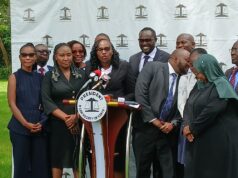was fortunate enough to grow up in a Christian home and spent my childhood going to church every Sunday. I went the way up through the Sunday school system. At one point was going to church four times every Sunday – morning service, afternoon meeting, evening service and youth group. Somehow I survived and it didn’t do me any harm. I enjoyed it, by and large.

But taken all in all, there are things I wish I’d learned then that I only found out later. And I worry that some Christians have a Sunday school faith, and haven’t really developed into mature spiritual adults.
So here are some of the things I’ve learned since Sunday school.
1. It’s OK to ask questions
Or maybe, it’s OK to ask questions and not get any answers. When we’re children, we take what grownups say because we know there’s so much we don’t know. We assume they do. But what happens if no one knows? What happens when the questions are just too big or too difficult? There are things in the Bible we’ll never understand this side of glory – a good part of the book of Revelation, for a start. But turning it into a sort of code that we have to break isn’t helpful. It’s far better to open it, read it, and in patient humility ask God to speak through it.

2. Not everything in the Bible is straightforward
A lot of it is. I could still sing that old song, “Jesus loves me, this I know, for the Bible tells me so” and mean it. But if I were teaching Sunday school I’d want to be far more intentional about how the Bible works. So when we talk about the creation stories, for instance, I’d want to be clear that we aren’t setting them up as alternatives to science. I’d want to say these are stories that tell us about God and how he wants the world to be, and how he wants us to relate to the world.
3. Whom you believe is more important than what you believe
That’s a dangerous thing to say, and I’m not suggesting doctrine doesn’t matter. Doctrine is crucial, because if we believe the wrong things about God, sooner or later we end up believing in the wrong God. But what carries us through a lifetime of discipleship isn’t our knowledge of Bible stories or our ability to name the five points of Calvinism. It’s a relationship with Christ, fed by prayer and trust.
`
4. People matter more than facts
Sunday schools began as just that – schools that met on Sunday. Not far from where I live is the house of Robert Raikes (1736-1811), credited with starting the movement that saw hundreds of thousands of poor children, out at work all week, taught reading and writing from the Bible. But schools, even in our enlightened times, are fundamentally about conveying information into young heads. They try to do more than that, but they’re constrained by a demanding curriculum. In church, on the other hand, information is secondary. Churches are about forming Christian character. They don’t set out to convey information; they set out to grow a disciple.

5. We need to learn more than the Bible
The Bible is super important. But as well as learning Bible stories, reading and re-reading, we need to be able to see God in his world as well, in the things he’s made and in the people around us. If we can develop the discipline of looking down into the pages of Scripture that’s good. But learning to look up at the wonders of God’s world is good too. The Bible is not God’s only book. He is at work in art, in literature, in music and in nature as well.
If we have children in our churches we have a wonderful privilege. But we have a responsibility, as well – to help them grow into mature spiritual adults who are comfortable with questions, confident in reading the Bible, rooted in Christ and with noble characters, and with eyes wide open to the whole of God’s creation.




